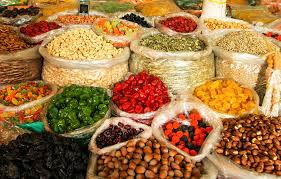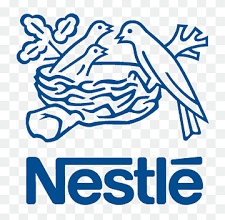Nestle Nigeria: Promoting Sustainable Food System

By Edet Udoh
Nestle Nigeria as a good corporate citizen is not leaving anything unturned and is working assiduously in promoting a sustainable food system that will guarantee food sufficiency in Nigeria.
The company has introduced various initiatives to drive agricultural growth in Nigeria and has made significant impacts in empowering farmers and enhancing agricultural growth in the country.
To ensure a sustainable food system in the country, Nestle is laying out its plans to support and accelerate the transition to a regenerative food system – one that aims to protect and restore the environment, improve the livelihoods of farmers and enhance the well-being of farming communities.
Nestle is investing about N353 billion in agriculture in the next five years, all aimed at ensuring a sustainable food system in the country.
Nestle is also working with its food system partners, including the company’s network of more than 500,000 farmers and 150,000 suppliers, to advance regenerative farming practices at the heart of the food system.
As part of this journey, the company has initiated new programmes to help address the social and economic challenges of the transition.
Making its plans known at the United Nations Food Systems Summit in New York, as part of its contribution to help achieve the Sustainable Development Goals (SDGs) by 2030, the Chairman of the firm, Paul Bulcke stated, “We know that regenerative agriculture plays a critical role in improving soil health, restoring water cycles and increasing biodiversity for the long term. These outcomes form the foundation of sustainable food production and, crucially, also contribute to achieving our ambitious climate targets”.

Providing High-Yielding Crops for farmers/Training
Nestle is, for example, is developing higher-yielding coffee and cocoa varieties with lower environmental impact and assessing novel solutions to reduce emissions in the dairy supply chain. Nestle is also offering agricultural training and helping farmers exchange information and best practices that can be adapted locally.
The Company is also offering investment support because they are aware that the transition to regenerative agriculture comes with initial risks and new costs.
Nestle is supporting farmers by co-investing with them, facilitating lending or helping them obtain loans for specific equipment. The company is also working with partners to fund pilot projects to test and learn how best to advance regenerative agriculture.
Pay premiums for regenerative agriculture goods: Nestle will offer premiums for many raw materials produced using regenerative agriculture practices and buy bigger quantities. This means rewarding farmers not only for the quantity and quality of ingredients but also for the benefits they provide to the environment through soil protection, water management and carbon sequestration.
Improved Yields, Farmers’ livelihood
Nestlé Nigeria PLC, in collaboration with International Fertilizer Development Centre (IFDC) / 2Scale, is helping farmers improve their livelihoods by empowering smallholder farmers on sustainable farming practices under the initiative, Nestlé Nigeria & IFDC/2Scale Project Sorghum & Millet. The partnership aims to improve grain quality and productivity.
Addressing food quality at the farm level
Nestlé, together with its implementing partners, has made significant impacts in the past two years, training over 7905 sorghum and 1069 millet farmers on good agricultural pre-harvest and post-harvest practices. 22% of these farmers are women. The farmers testify to a significant increase in income.
This change is due to an increase in productivity, improved crop quality and the availability of a ready market, which eliminates the negative influence of middlemen.
Before Nestlé Nigeria & IFDC/2Scale Project Sorghum & Millet’s intervention, the yield per hectare was 0.9 tons.
In the first year of the project in 2015, the yield doubled to 1.3 tons/hct, and reached 1.8 tons/hct in 2017. The target was to reach 2.20 tons/hct in the 2018 farming season, progressing towards the maximum yield capacity of 2.35 tons/hct of the crop varieties.

Empowering farmers for Effectiveness
Another contributor to the increase in income is the improved negotiating skills of farmers, an outcome of the business training and coaching they have received. The coaching sessions have led to farmers becoming much more confident about their position and the quality of their products. For women producers, this has had an especially strong impact. One example of this can be found in Mrs. Hanna Musa, one of the two women in the negotiation team. Prior to the coaching, she had been too shy to speak up, but the opportunity to participate in the negotiations on Nestlé’s terms of delivery and payment, helped her grow into her leadership role.
Reduction of post-harvest losses
Speaking on the drivers of the outcome of Nestlé Nigeria & IFDC/2Scale Project Sorghum & Millet, Mr. Maxwell Olitsa, Project Manager, IFDC said, “We achieved the results in the field by empowering farmers to adopt best practices and new technology. Showing in addition to telling also made a lot of difference.
27 demo plots were established; six of them managed by women, where best farming practices are demonstrated. The demo plots are always accessible to the farming clusters to provide continuous technical support and coaching in the field.”
He said to ensure crop integrity from farm to factory gate, the project also trains aggregators, pesticide spray providers and input suppliers, noting that the 360-degree approach has significantly reduced post-harvest losses.
While helping to improve the livelihoods of farmers within the project, Nestlé projects that the continued intervention with its partners will result in sustainable supplies of high-quality grains required for its production sites, the CEO emphasized the impact of the project on the livelihoods of farmers and on the company as well as the resultant benefits and value for the consumers of its products.
Nestle is doing all these because as a good corporate citizen, it is quite aware of what is happening in the Nigerian agriculture space, especially food scarcity and high food prices leading to extreme hunger and poverty.
Agriculture Issues in Nigeria
Healthy, sustainable and inclusive food systems are critical to achieving the world’s development goals and analysts believe that agricultural development is one of the most powerful tools to end extreme poverty, boost shared prosperity, and feed a projected 9.7 billion people by 2050.

Growth in the agriculture sector is two to four times more effective in raising incomes among the poorest compared to other sectors. Analyses in 2016 found that 65% of poor working adults made a living through agriculture.
Agriculture is also crucial to economic growth and in 2018, it accounted for 4% of global gross domestic product (GDP) and in some least developing countries, it can account for more than 25% of gross domestic product (GDP).
Agriculture remains the largest sector in Nigeria contributing an average of 24% to the nation’s GDP over the past seven years (2013 – 2019). In addition, the sector employs more than 36% of the country’s labour force, a feat which ranks the sector as the largest employer of labour in the country.
The share of agricultural contribution to GDP as of the first quarter of 2020 stood at approximately 22%.
More than 80% of Nigeria’s farmers are smallholder farmers (SHFs). These numbers account for 90% of Nigeria’s agricultural food production.
In 2019, only about N40 billion was earmarked by the government for agricultural research and development (R&D) and in 2021, the agriculture budget represents 1.8% (or N183 billion) of the total budget size. This significantly falls short of the 10% specified in the Maputo Declaration.
Today, Nestle as a company is reaching out to other institutions, media, and NGOs, including the government advocating for the need to adequately empowered the farmers with the provision of modern farming implements so that they will be able to produce enough food that will take care of the growing population of the country even as they also call for the entrenchment of a sustainable food system that guarantees good health, economic growth, and environmental sustainability.




